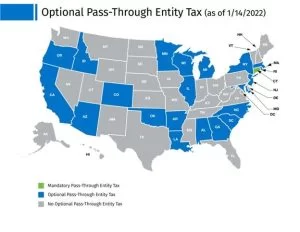
Business Advisory Services
Everything you need to help you launch your new business entity from business entity selection to multiple-entity business structures.
Hey - Our site just had a makeover and we are sorting through the hiccups!
Hey - Our site just had a makeover and we are sorting through the hiccups!

Everything you need to help you launch your new business entity from business entity selection to multiple-entity business structures.

Designed for rental property owners where WCG CPAs & Advisors supports you as your real estate CPA.

Everything you need from tax return preparation for your small business to your rental to your corporation is here.

Posted Saturday, July 26, 2025
Table Of Contents
 Accurate estimated tax payments come from proper tax planning. There is nothing worse than the fear of the unknown- having cash in the bank, but not knowing how much is yours and how much is Uncle Sam’s. Let’s take the mystery out of the unknown and have WCG CPAs & Advisors be your tax advocate and tax strategist, and do some tax planning, and dial in those eventual tax liabilities and subsequent estimated tax payments.
Accurate estimated tax payments come from proper tax planning. There is nothing worse than the fear of the unknown- having cash in the bank, but not knowing how much is yours and how much is Uncle Sam’s. Let’s take the mystery out of the unknown and have WCG CPAs & Advisors be your tax advocate and tax strategist, and do some tax planning, and dial in those eventual tax liabilities and subsequent estimated tax payments.
Tax planning has two distinct complications- when should tax planning happen? And what does it entail? Tax planning is more than a December scramble — it’s a year round discipline. Looking around on December 31 at something to buy just to grab a quickie tax deduction is not tax planning, and it certainly is not a tax strategy. It is operating in crisis mode. Said differently, many taxpayers, business owners and real estate investors react to tax deadlines instead of proactively managing their “taxable surface” (as one client said years ago) throughout the year.
Ok, that’s the elevator speech and we’ve hit the ground floor. What does tax planning entail? WCG CPAs & Advisors splits the concept of “tax planning” into three separate categories-
Each of these has a distinct scope of work and deliverable. Let’s bang out the general scope and associated fee with the following table, and then a whole bunch of gibberish explaining it all. Please read on!
| Planning Level | Scope | Included on Advisory Platform | Ala Carte Fee |
| Projections | Household, tax liability calculation based on projected data | All | $600 |
| Projections | Business, PTET / franchise tax calculation based on expected profit | Telluride, Copper | $350 |
| Projections | Multi-state apportionment and tax calculations | $150 to $250 each, add-on | $150 to $250 each, add-on |
| Advisory | Decisions to affect tax positions | 90 Mins w/ Business Advisory | $1,000 to $1,500 |
| Strategy | Series of scenario based outcomes over years needs to be analyzed | Quoted | |

Learn about the differences between business advisory (Vail, Telluride, Aspen) and tax patrol including investor patrol services (Keystone, Copper, Breck).
When people say it is not about the money, it is all about the money, right?
WCG CPAs & Advisors believes in a lot of things that buck the traditional CPA firm approach. Having each service line stand on its own is one such thing. For example, a lot of firms will discount bookkeeping services and then puff up the tax preparation invoice to subsidize the combined service. We don’t like this approach, and it also marginalizes the people on our accounting services (bookkeeping) team.
Same with tax planning. Sure, we could puff up the tax preparation invoice and then offer “free tax planning.” Nonsense. Not everyone needs tax planning, and as such, they are overpaying for tax return preparation. Same with baggage fees- everyone hates them, except those who do carry on and don’t want to subsidize your pallet of luggage for a weekend in New York City.
No one works for free. So if another CPA firm is offering tax planning separate from tax return preparation, they are making up for it somewhere. Only free donuts are honorable (and worth having).
We have the table above to show what’s included with various engagements such as business advisory and tax patrol, but the following table shows similar information in a different way-
| Tax Projection Services, Estimated Tax Payments, One Household | $600 |
| Business Entity Tax Projection Services, Estimated Tax Payments, PTET Calcs | $350 |
| Stand Alone Tax Optimized Reasonable Salary Calcs, Payroll Planning | $450 |
| Combo Platter: Household, Business and Payroll Planning (3 services above) | $950 |
| Add On: State / Local Tax Projections | $150 to $250 |
| Tax Advisory, Quickie, 40 minutes | $250 |
| Tax Advisory, Project | quoted |
| Tax Strategy, Project | quoted |
* Tax projection services are automatically included in our business advisory and tax patrol including investor tax patrol services. Business entity tax projections are included with Telluride and Aspen, and reasonable salary calculations and payroll planning are included with all business advisory.
Our Tax Projection Services simply takes your expected household income including W-2 wages, retirement income, investment income, business income and rental income, and projects your tax obligations for the year by creating a mock tax return. We factor in any changes in household like marriage, children born or launched, etc. Yes, this is mostly re-active. Tax Advisory and Tax Strategy Services are more proactive and are detailed later.
Tax Projection Service for both your household and your business is included in all our advisory platforms- business advisory services, tax patrol services and investor patrol services. It is available for our tax-only individual engagements for a fee of $600, and $950 for both individual and business tax projections including pass-through entity tax (PTET) and franchise tax (and various state versions) calculations.
Sidebar: Payroll planning is not included with Tax Projections. In other words, reasonable owner salary recommendations and optimization, plus 401k, fringe benefit and health insurance matters as they relate to payroll processing are considered Tax Advisory Services.
The initial process goes like this-
The pre-planning meeting usually lasts about 40 minutes. In addition to the mini agenda above, we have an extensive questionnaire to get the creative juices flowing… which get pumped into our tax projection software-

Your unique situation will take us down various roads, and more questions and answers will come up. Also.. and this is important.. we might not arrive at the answer you like or want but it will be accurate nonetheless. The sooner you have an answer the sooner you can begin warming up to its consequences (good or bad).
Afterwards, we create a tax projection worksheet using a mock tax return and estimated tax payments if applicable.
One of our objectives with Tax Projections Services is to achieve tax neutrality on your tax returns by aiming for a $1,000 refund from the IRS and $500 refund from the state. How do we do this? If you are an S Corp shareholder, we increase your income tax withholdings to land on tax neutrality. Otherwise we create a schedule of estimated tax payments.
Should your tax footprint span multiple states then an additional tax projection fee might be incurred. For example, you are a consultant living in Colorado and your only client is in California. You will likely have a California income tax obligation given your revenue concentration, and you will also have a Colorado obligation. Generally, how these states interact is that you pay California tax, and Colorado gives you credit (to a limit) of the taxes paid to another state. There are a zillion examples- please visit our state apportionment web page to learn more.
Each additional state beyond your resident state might add $150 to $250 in tax planning fees.
For those advisory platforms (Vail, Telluride, Aspen, Keystone, Copper, Breck and Investor Patrol), if we do not have your data by July 31, then we cannot complete tax projections for the year. Instead, we will create tax projections based on the previous year assuming “same as last year” or SALY in nerdy accounting vernacular. We will not scramble in November and December to crank out some tax projections that could have been done in the summer. Time is just way too compressed with holidays and whatnot, and the tax team has other duties such as end-of-year planning, payroll bonus processing and roll forwards and other verifications.
Yes, we leave room for exceptions- a good example is a real estate agent or someone who is paid via commissions, and income streams are lumpy and bumpy.
For our Business Advisory platforms (Vail, Telluride, Aspen) where WCG is processing payroll. we must obtain or confirm a series of things for your W-2 preparation. Specifically, we review employee (including your) 401k deferrals, self-employed health insurance, HSA contributions made by the business, and disability and long-term care premiums. These must be penny perfect, especially the 401k stuff.
Next, we review your payroll plan for the upcoming year. Two things can complicate the new payroll plan as we roll into the new year-
At times we see the “short-year” effect with rental property owners as well but in a different way- first year expenses getting your short-term rental online won’t repeat and perhaps you missed the busy season with the purchase date. More importantly, a cost seg study is a one and done. All in all, you could have a big fat loss in year 1, and a material rental profit the following year that moves your tax needle.

We often get asked about rental properties, specifically short-term rental properties, and how they are a tax strategy especially among high income earners. As we’ve mentioned elsewhere, rental properties are a wealth building strategy not solely a tax reduction strategy. However, they can be both!
Tax Advisory Services is one step beyond tax projections, and is a proactive process to help you make a one and done decision. It is marrying your facts with the various tax reduction strategies to identify tax opportunities which align with your risk profile allowing you to find comfort with informed decisions.
No, our mother didn’t write that (neither did AI). Who did? Nearly two decades of walking this rock preparing tax returns and working with business owners and rental property investors wrote that cheesy line. Conversely, tax projections determine tax obligations given your facts. A sorting of the bodies, if you will.
While tax projections are required to build upon, they are not advisory in nature and cannot answer questions like-
Tax Advisory Services are quoted as Planning Projects based on expected hours to complete and an hourly rate of $375 with a 2-hour minimum. In our experience, most Tax Advisory engagements are four hours or less. You can budget around $1,000 to $1,500 which includes meetings before and after the project. Tax Advisory is great for those spikes of questions that only come up once in a while- pay as you go sort of thing.
Some of the questions are straightforward, and a $1,000 planning project fee seems a tad high. However, it is rare that we are only tackling a singular issue- so many things are intertwined. Having said that, we also offer a quickie version of Tax Advisory which is 40 minutes for $250. See big button below.
Sidebar: WCG CPAs & Advisors has been built from the beginning to buck the traditional CPA firm norms such as time billing in favor of value-based fees. We despise time billing with the heat of a thousand suns (ok, a bit dramatic) but for some tax matters, we have no choice.
Tax Advisory Services are typically handled by WCG Partners or Senior Tax Managers. This stuff is crazy like the glue and trains, and requires a deep knowledge of the tax code plus the finesse to explain the nuances and subtleties. It is expensive, Yes, but the anxiety of not knowing or the costs of incorrect decisions is worse. Did we throw one too many pitches on that last one?
Our Business Advisory platforms (Vail, Telluride, Aspen) include 90 minutes of Tax Advisory Services in addition to Tax Projections Services. Discussions are usually overlapped with the ones above for tax projections- one stone, two birds. Are we hyper accurate with nutty time recordings? Not really- again, we despise this billable time stuff. All the same, we must pick a time number to keep us on the right track.
Another silly consideration to keep in mind- Building wealth is your primary and perhaps only mission; not saving taxes. If we can do both, Yay! However, paying taxes provides value to your assets, such as a business or rental property. As such, paying taxes gives you access to capital, and access to capital helps build wealth (or do the things you want to do).
We can also do Tax Advisory as an add-on to our Tax Patrol Services or Investor Patrol Services platforms. This is usually a $750 add-on.
When do we go from tax projections to tax advisory? It is tricky and it mostly hinged on “making a decision” with the advice we provide. Here are some examples-
| Tax Projections | Tax Advisory |
| I did a cost seg which came in at $120,000 of eligible property for bonus depreciation. I plan to deduct it all. | Should I use 100% bonus depreciation on all asset classes, or only use one or two of the classes available (5- 7- and 15-year)? |
| I purchased a heavy truck for $90,000. I plan to deduct the max. | Should I purchase a heavy truck this year or next? Should I do the max depreciation, or plan it out? |
| I max’d out my Roth 401k. | Should I max out my Roth 401k or pre-tax 401k, assuming a 22% marginal tax rate in retirement and a 8% rate of return? |
| I received $30,000 in capital gains this year from selling stock. | Should I realize more gains this year or defer to next year to optimize my AGI and avoid triggering NIIT or AMT? |
| I sold the rental on Elm Street for $450,000. | I have the option to do an installment sale on the Elm Street rental over 5 years. Should I take it? (follow-up from WCG- Did you risk adjust the purchase price?) |
There are 6,772 other examples that we came up but don’t want to bore you. Where do we go from here? Easy! Your job is to extract the most out of your WCG CPAs & Advisors tax planners. Our job is to have the awkward scope conversation.
As an alternative to the Planning Project above, if you need a quickie Tax Advisory session, you can schedule a 40-minute consultation for $250 with one of our Partners. This is a nice way to ask some advisory-esque questions that perhaps don’t require the depth and complication of a 2-hour project.

Click the button below to schedule an amazing 40-minute paid consultation with a WCG CPAs & Advisors Partner.
Effective tax strategy is more than minimizing your tax obligations or “taxable surface” with a one-off or static decision. Rather, tax strategy is about aligning tax advisory with your long term financial, business and real estate objectives, and generating a tax strategy plan that encompasses multi-year and multi-scenario based outcomes.

Similar to Tax Advisory, Tax Strategy Services are quoted as Planning Projects based on expected hours to complete and an hourly rate of $375. As you can image, these projects could vary wildly in complexity requiring more time and effort including discussions with you.Tax Advisory is typically $1,000–$1,500, whereas Tax Strategy is usually $1,500 to $3,000 and includes a customized Tax Strategy Plan deliverable.
How are Tax Strategy Services different than Tax Advisory? The line is blurry for sure! Tax strategy is usually more complex and involves layered decisions and actions. We also write a report, the tax strategy plan, that is delivered and reviewed with you. From there we can update the tax strategy plan as your circumstances and risk-profiles change.
How are Tax Strategy Services the same as Tax Advisory? Both aim to provide comfort in your decision-making process and to reduce your FOMO. The fear of missing out on amazing and wonderful tax deductions that others can’t help but brag about to you at the cocktail party and as reinforced by your bartender.
As mentioned above, WCG CPAs & Advisors splits the concept of “tax planning” into three separate categories-
Email is a wonderful tool for sending data, memorializing decisions, and asking simple "Yes/No" questions. It is also a terrible tool for explaining complex tax strategy. To ensure we remain efficient (and sane), we operate under two primary communication rules:
To produce high-quality work, our tax team needs uninterrupted focus. As such, we generally process email on Mondays and Thursdays. Why? It allows us to be heads-down in your data on Tuesdays, Wednesdays and Friday (during tax season) without distraction.
Need us sooner? Call us! We are not allergic to the phone. If it is urgent, a 5-minute phone call beats a 3-day email wait every time.
If your email requires more than 5–10 minutes to write a response, we will not reply via email. Instead, we will call you or send a calendar link to discuss. Why? The PB&J Concept!
Everyone loves a Peanut Butter & Jelly sandwich. But trying to explain how to make one via email takes 45 minutes. Seriously! Consider all the options. Crunchy or smooth? Strawberry or Grape? Diagonal cut or straight? Toasted? Pros and cons of each. Proofreading.
We could trade 15 emails debating jelly, or we could have a 12-minute conversation via Teams or phone call, build the perfect sammy, come away more fulfilled, and move on with our lives.
We know conversations can be forgotten within minutes for the busy person. As such, after every meeting, we send a recap email to memorialize the discussion. While no one likes to read anyway, this recap email also gets captured by our workflow software allowing all other team members to view the recap as necessary.
Our email response is limited to short 5-10 minute responses. Otherwise we schedule a meeting to discuss. We understand that this communication style might not work for everyone.
Note: We always make exceptions for our deployed military clients (or those trapped on a secure no-comms base), expats in weird time zones, or those with accessibility needs.
So many things appear to be tax-related, but they are actually investment-related. While we appreciate the trust you place in us, not all things with a dollar sign are handled by your tax professional.
We operate under a "Stay in Our Lane" philosophy. Even though we have CFPs and former financial advisors on our team, when we are wearing our CPA hats, we must defer to those who provide financial planning and retirement advice on a daily basis.
Here are a few common examples of how to distinguish between a tax question and a financial advisor question:
FA: "Yes/No based on your cash flow and retirement goals."
Average CPA: "If you do, you will defer $x,xxx in taxes."
Good CPA (Us): "Be mindful of all your investment cash being illiquid or trapped in a qualified retirement account. There are other ways to build wealth which might have some tax efficiency as well such as real estate, structured equipment leases, working interest in oil and gas wells, among other things."
FA: "Here is my advice based on your long-term betting regarding future tax rates vs. current rates."
Average CPA: We can model the immediate tax impact, but the decision is a retirement and investment strategy.
Good CPA (Us): "It depends on your age (how close you are to those 'not working years') and your projected retirement income. Keep in mind the Rule of 72—your investment will generally double every 9 years. If you are 40, you might have 3 doublings before you need the money. Please coordinate with your financial advisor, but know that we have strong feelings towards Roth contributions here]."
FA: "You should convert $50k this year to hit your accumulation goals."
Average CPA: "If you convert $50k, you will stay in the 24% bracket. If you convert $75k, about $25k will be in the 32% bracket."
Good CPA (Us): "Let's pair that conversion with a cost segregation study on your short-term rental to offset the tax hit."
FA: "Let's discuss the market allocation and growth strategy since these items need to be adjusted for your risk profile."
CPA: "We can calculate the Required Minimum Distributions (RMDs) and the tax bite, but not the growth strategy."
Your job is to ask us anything. Our job is to either answer it or say, "We are unable to help, but we know who can." We are not punting- plenty of that to go around these days as you can imagine. We are staying in our lane in a legal and suitability sense, and kindly deferring to others who are more capable.
Also! Keep in mind that we are happy to interface directly with your financial advisor- this cuts through all the shuttle diplomacy nonsense and inherent miscommunication.
Way back in 2017, the Tax Cuts and Jobs Act was passed with a lot of cool tax deductions like corporate taxes going to 21% and the Section 199A qualified business income deduction. But life is one big equalizer, and Congress wanted to limit state and local taxes (SALT) to $10,000. This means either state income taxes or real estate taxes, or both, were severely muted. People in South Dakota owning a $600,000 house were like “what’s the big deal?!” People living in Oregon (second highest state income tax rate next to California) owning the same house were like “WTF, over?!”

So! States got creative, and created a state tax that was deducted on partnerships and S corporations (otherwise called pass-through entities, or PTE for short) resulting in lower federal taxable income. This tax was in turn credited to the small business owner resulting in lower state income taxes being reported on Schedule A. This is a workaround to the SALT limit, and nearly all states have enacted legislation to do just that.
The IRS took note to the workaround, but understood it was perfect legit. The IRS through Notice 2020-75 states,
“Certain jurisdictions described in section 164(b)(2) have enacted, or are contemplating the enactment of, tax laws that impose either a mandatory or elective entity-level income tax on partnerships and S corporations that do business in the jurisdiction or have income derived from or connected with sources within the jurisdiction. In certain instances, the jurisdiction’s tax law provides a corresponding or offsetting, owner-level tax benefit, such as a full or partial credit, deduction, or exclusion.”
The IRS continues by stating this practice is permitted under the notice until it can legislate this practice into regulations.
There are all kinds of rules, and not every business owner will benefit from the PTET or pass-through entity tax deduction. As such, the tax planning for determining the efficacy of using this tax deduction is challenging.
 One of our primary focuses at WCG is ensuring you are paying the least amount of taxes allowed by law. Some of our other primary focuses are helping you build wealth and leverage the most of your financial worlds for you and your family. However, these focuses or objectives are not isolated; they are very much related to each other and intertwined.
One of our primary focuses at WCG is ensuring you are paying the least amount of taxes allowed by law. Some of our other primary focuses are helping you build wealth and leverage the most of your financial worlds for you and your family. However, these focuses or objectives are not isolated; they are very much related to each other and intertwined.
We can discuss several tax reduction strategies in the abstract such as borrowing against your unrealized gains, state deferrals and residency changes, 401k and retirement plans, cost segregation, adding spouse or children to payroll, 1031 exchanges, conservation easements, among other fun stuff in the form our Tax Advisory services (see above).
However, if we want to see the actual tax savings or results in the form a customized plan with a series of analysis and tax savings calculations, then this will be considered Tax Strategy services.
Table Of Contents

Tax planning season is here! Let's schedule a time to review tax reduction strategies and generate a mock tax return.

Tired of maintaining your own books? Seems like a chore to offload?
Did you want to chat about this? Do you have questions about WCG’s tax planning service levels including tax strategy?
The tax advisors, business consultants and rental property experts at WCG CPAs & Advisors are not salespeople; we are not putting lipstick on a pig expecting you to love it. Our job remains being professionally detached, giving you information and letting you decide within our ethical guidelines and your risk profiles.
We see far too many crazy schemes and half-baked ideas from attorneys and wealth managers. In some cases, they are good ideas. In most cases, all the entities, layering and mixed ownership is only the illusion of precision. As Chris Rock says, just because you can drive your car with your feet doesn’t make it a good idea. In other words, let’s not automatically convert “you can” into “you must.”
Let’s chat so you can be smart about it.
We typically schedule a 20-minute complimentary quick chat with one of our Partners or our amazing Senior Tax Professionals to determine if we are a good fit for each other, and how an engagement with our team looks. Tax returns only? Business advisory? Tax strategy and planning? Rental property support?
Tax planning helps estimate and manage your tax liabilities today and tomorrow, removing the uncertainty of how much of your cash belongs to you versus the IRS.
It’s a year-round activity—not a December scramble—and should be done proactively, not reactively.
WCG divides tax planning into Tax Projections, Tax Advisory, and Tax Strategy—each with a different scope and purpose.
It includes mock tax returns based on your projected income, factoring in changes like marriage, new dependents, or income shifts.
For our tax-only engagements, it costs $600 for individual projections and $950 for both individual and business projections, including PTET and franchise taxes.
Tax advisory focuses on one-time decisions like stock sales or Roth conversions and is quoted at $375/hour with a 2-hour minimum.
Advisory focuses on single decisions, while strategy evaluates multi-year, scenario-based plans aligned with long-term goals.
We offer a 40 minute consultation for $250 that is wide open for your Q&A pleasure.
Taxpayers, business owners and real estate investors with complex, long-term financial or business goals, such as multi-year Roth conversions with lifetime changes in taxes or cash flow ROI combined with cost segregation analysis.
Yes, all business, tax patrol, and investor advisory services include tax projections.
Pay stubs, prior tax returns, and completion of the Simplified Tax Planning (STP) worksheet.
We review your income, retirement plans, real estate activity, estimated tax payments, and answers initial questions.
Via a PDF tax projection worksheet to your ShareFile folder, including updated payroll plans and estimated payment schedules as separate PDFs—with an optional follow-up meeting or Loom video.
WCG can calculate multi-state apportionment for an additional $150–$250 per state.
If data isn’t received by July 31, WCG uses “same as last year” assumptions to build tax projections for our advisory engagements.
We confirm 401k deferrals, HSA contributions, insurance premiums, among other things, and plan payroll for the following year (especially if income is changing or you had a compressed year).
The tax team checks emails only on Mondays and Thursdays and prefers calls or meetings for complex matters (10-minute rule… if we cannot answer in 10 minutes, we call or schedule a meeting).
PTET allows businesses to pay state income taxes at the entity level to create a federal deduction, bypassing SALT limits.
“Should I sell Tesla stock now or later?” or “Should I convert my traditional IRA to a Roth this year?”
They are quoted as Planning Projects depending on scope and hours required. Tax Advisory is typically $1,000–$1,500, whereas Tax Strategy is usually $1,500 to $3,000 and includes a Tax Strategy Plan deliverable.

Everything you need to help you launch your new business entity from business entity selection to multiple-entity business structures.

Designed for rental property owners where WCG CPAs & Advisors supports you as your real estate CPA.

Everything you need from tax return preparation for your small business to your rental to your corporation is here.


